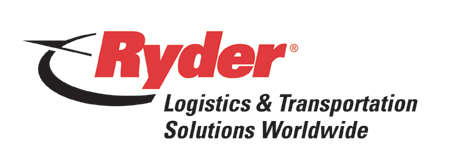 Ryder has embarked on the road of using cleaner fueled vehicles in its Southern California fleet thanks to Clean Transportation Funding from the MSRC. The MSRC helped serve as a “one-stop-shop” for Ryder by providing incentives for both its new compressed natural gas (CNG) vehicles and the infrastructure to support these vehicles.
Ryder has embarked on the road of using cleaner fueled vehicles in its Southern California fleet thanks to Clean Transportation Funding from the MSRC. The MSRC helped serve as a “one-stop-shop” for Ryder by providing incentives for both its new compressed natural gas (CNG) vehicles and the infrastructure to support these vehicles.
As a Fortune 500 commercial transportation, logistics and supply chain management solutions company, Ryder is always looking for ways to help its customers be more efficient in their operations while investing in technologies that can help its bottom line. Ryder believes that CNG-fueled vehicles are one such innovation. “We want to provide our customers with solutions across a broad portfolio of vehicles from light to heavy duty trucks, and the MSRC’s grant helped us with this goal,” said Scott Perry, Vice President of Supply Management for Ryder.
To further its commitment to deploying natural gas vehicles, Ryder received more than $650,000 from the MSRC’s Alternative Fuel Engine On-Road Vehicle Program to purchase 19 CNG medium-duty freight trucks that are targeted for local delivery service operations. This program provided incentives to purchase the lowest emitting heavy-duty engines commercially available in order to reduce harmful NOx emissions. These vehicles operate out of Ryder’s facilities in Orange, Fontana and Rancho Dominguez.
 The MSRC-funded vehicles are part of Ryder’s rollout of 39 light- and medium-duty CNG trucks in California, the first of their kind in North America available for lease or rent by the public. “Deploying these vehicles in our rental fleet has allowed customers from many different businesses to experience first-hand the benefits of driving CNG trucks,” Scott remarked. “Our customers’ experiences have been so positive that they have entered into long term contractual agreements with us for these vehicles that otherwise might not have been done if customers hadn’t had the opportunity for a trial run through our rental program.”
The MSRC-funded vehicles are part of Ryder’s rollout of 39 light- and medium-duty CNG trucks in California, the first of their kind in North America available for lease or rent by the public. “Deploying these vehicles in our rental fleet has allowed customers from many different businesses to experience first-hand the benefits of driving CNG trucks,” Scott remarked. “Our customers’ experiences have been so positive that they have entered into long term contractual agreements with us for these vehicles that otherwise might not have been done if customers hadn’t had the opportunity for a trial run through our rental program.”
These vehicles will bring Ryder’s California fleet of CNG vehicles to 241, which includes 202 heavy-duty tractors. These CNG trucks have helped Ryder expand its existing fleet of more than 400 natural gas vehicles across the country, with more on the way. In fact, Ryder just announced that its national fleet has logged more than 15 million natural gas miles.
“Our CNG vehicles operating in the South Coast region have been a true success story and have enabled us to take lessons learned from this project and work with customers and manufacturers in other parts of the country to make our expansion of CNG trucks more seamless,” Scott said. Ryder has CNG vehicles deployed in several states including Arizona, Michigan, Georgia, Texas, and New York, just to name a few. “We learned that access to commercially configured fueling infrastructure is key, and that vehicle technology and providing access to maintenance and repair services for these types of vehicles is important. But, the biggest lesson we learned was about the misconceptions people had about CNG - whether it’s safe, the energy output needed to haul heavy loads, and whether drivers would take to the new technology. Thus, our experience in the South Coast was key to developing a full blown strategic initiative on CNG for us,” explained Scott.
Additionally, through its Alternative Fuel Infrastructure Program, the MSRC provided $350,000 in funding to Ryder to construct the first two natural gas fueling stations in the company’s network. MSRC representatives Larry McCallon and Tim Shaw participated in the stations’ grand opening events that Ryder held over the summer. These publicly accessible Liquefied Natural Gas/CNG stations are located in the Cities of Orange and Fontana and not only support Ryder’s operations but also help expand the network of CNG fueling stations, which goes to the heart of one of Ryder’s lessons learned.
As to why MSRC funding is important for early-adopter companies like Ryder, Scott remarked that it helps shorten the adoption curb of new technologies, like CNG for medium-duty trucks. “Some companies want to be innovators and take advantage of new technology but stay on the sidelines because of the cost. Financial incentives like those that the MSRC provides will bring these partners off of the sideline and into the game.”
